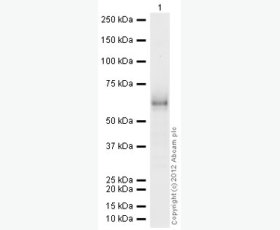Recombinant E. coli G/U Mismatch-Specific DNA Glycosylase/Mug
| Product name: | Recombinant E. coli G/U Mismatch-Specific DNA Glycosylase/Mug |
| Source: | E.coli |
| Purity: | Greater than 95% as determined by reducing SDS-PAGE. |
| Buffer Formulation: | Supplied as a 0.2 μm filtered solution of 20mM TrisHCl, 2.5mM β-ME, 1mM PMSF, 50% Glycerol, pH 8.0. |
| Applications: | Applications:SDS-PAGE; WB; ELISA; IP. |
| Storage: | Avoid repeated freeze/thaw cycles. Store at 2-8 oC for one month. Aliquot and store at -80 oC for 12 months. |
| UOM: | 100ug/50ug/200ug/1mg/1g |
| Source | E.coli |
| Description | Recombinant E.coli Mug is produced by our E.coli expression system and the target gene encoding Met1-Arg168 is expressed with a 6His tag at the C-terminus. |
| Names | G/U Mismatch-Specific DNA Glycosylase, Double-Strand-Specific Uracil Glycosylase, Mismatch-Specific Uracil DNA-Glycosylase, MUG, mug, ygjF |
| Accession # | P0A9H1 |
| Formulation | Supplied as a 0.2 μm filtered solution of 20mM TrisHCl, 2.5mM β-ME, 1mM PMSF, 50% Glycerol, pH 8.0. |
| Shipping |
The product is shipped on dry ice/ice packs. |
| Storage |
Store at < -20°C, stable for 6 months after receipt. Please minimize freeze-thaw cycles. |
| Purity |
Greater than 95% as determined by reducing SDS-PAGE. |
| Endotoxin | Less than 0.1 ng/µg (1 IEU/µg) as determined by LAL test. |
| Amino Acid Sequence |
MVEDILAPGLRVVFCGINPGLSSAGTGFPFAHPANRFWKVIYQAGFTDRQLKPQEAQHLLDYRCG VTKLVDRPTVQANEVSKQELHAGGRKLIEKIEDYQPQALAILGKQAYEQGFSQRGAQWGKQTLTI GSTQIWVLPNPSGLSRVSLEKLVEAYRELDQALVVRGRLEHHHHHH
|
| Background | E. coli Mismatch Uracil DNA Glycosylase (Mug protein) is an 18 kDa constitutively expressed protein which belongs to the TDG/mug DNA glycosylase family. It has been proposed that the Mug protein excises 3,N4-ethenocytosine and removes the uracil base from mismatches in the order of U:G>U:A, although the biological role remains unclear. Uracil bases in DNA can arise from deamination of cytosine giving rise to increased spontaneous mutations. The enzyme Uracil-N-Glycosylase removes uracil from the DNA leaving an AP site. It is capable of hydrolyzing the carbon-nitrogen bond between the sugar-phosphate backbone of the DNA and the mispaired base. The complementary strand guanine functions in substrate recognition. It is required for DNA damage lesion repair in stationary-phase cells. |














